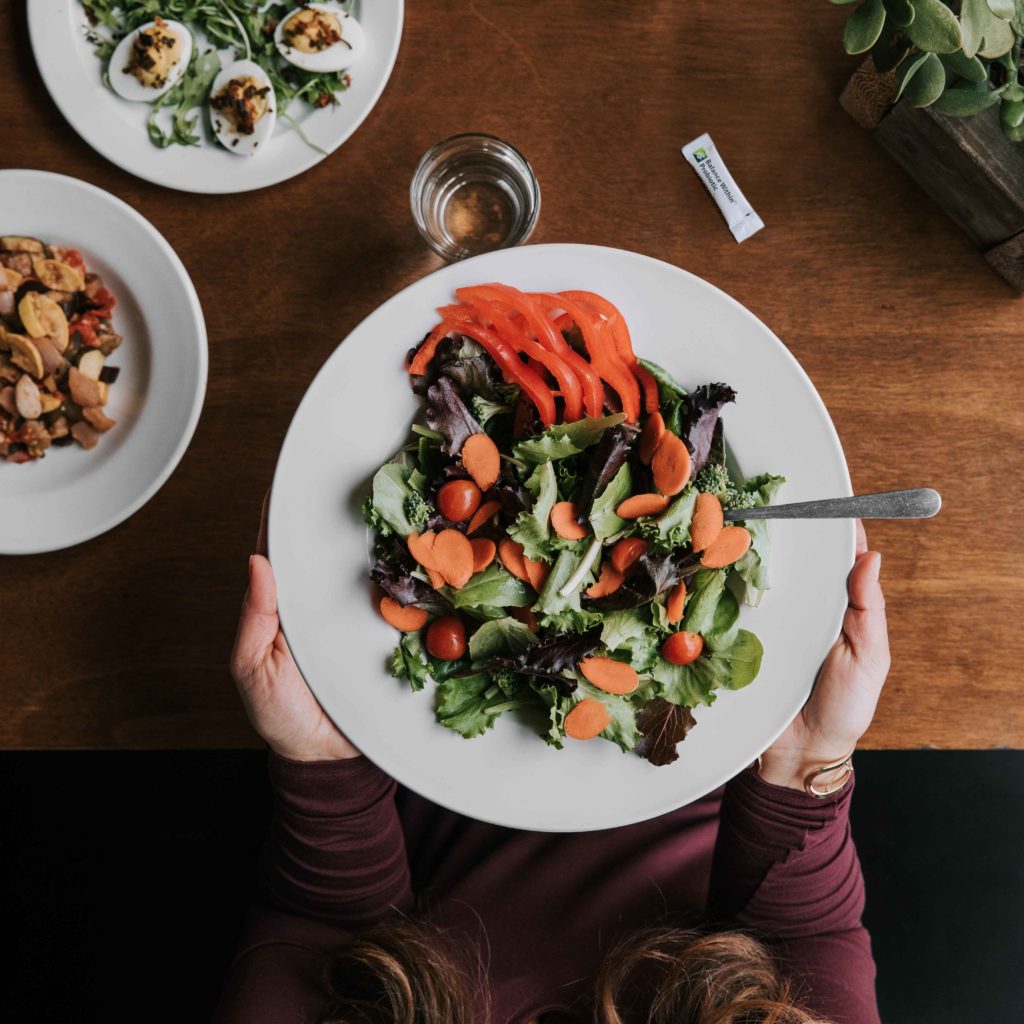With Summer ending and our Fall routine right around the corner, it’s a perfect time to reshare a post about 3 lifestyle habits for better gut health. Gut health is an increasingly important topic, and these tips will help you increase the good bacteria in your gut.

The human microbiome – the bacterial community that calls the human body home – continues to fascinate me. I am not alone. Last year, over 9,000 articles were published in the scientific literature on the subject, many about the bacterial community that lives in the human gut (the gut microbiome). In a previous post, I talked about how the health of your gut bacteria depends on your diet. Now, emerging research suggests that there are three things you can do right now to improve the health of your gut microbiome.
If you smoke, quit. You’ll improve your gut microbiome
We can add a healthy gut microbiome to the long list of reasons to quit smoking. In one review, published in the July 2018 issue of Archives of Microbiology, researchers found that smoking alters the gut microbiome in two important ways.
First, smoking changes the makeup of the bacterial colony in your gut, including decreasing potentially beneficial bacteria like Bifidobacteria. Second, smoking narrows the diversity of the entire bacterial colony.
Researchers have yet to confirm how smoking exerts these negative effects, but some believe it may relate to the ability to increase oxidative stress. Others suggest smoking may directly alter the integrity and function of the cells that line the intestine.

Relax and de-stress, your gut microbiome will thank you for it
There’s no debate that too much stress can cause digestive upset. Now, emerging research reveals this uncomfortable effect may relate to the gut microbiome. How?
First, stress may deplete potentially beneficial bacteria in the gut, including Lactobacillus bacteria. Second, stress may trigger the production of undesirable bacteria. Third, stress may increase the ability of undesirable bacteria to adhere to the cells that line the intestine. That’s a triple whammy that can take a serious toll on your gut health.

Get moving, it will fortify your healthy gut microbiome
Exercise, even moderate exercise, delivers a wide range of benefits for the body (and brain). Now, emerging research suggests that a healthy gut microbiome is another benefit.
In one study, published in the December 2014 issue of Gut, researchers were able to confirm for the first time that exercise increases the diversity of bacteria in the human gut. For this study, they compared the gut microbiome in professional male athletes (rugby players) during pre-season training to that of their sedentary counterparts.
When the researchers assayed stool samples for bacterial composition, they found the athletes had significantly greater diversity of gut bacteria, and the absolute differences were impressive. The athletes had at least twice as many bacterial phylum and families and almost twice as many genera. What’s more, the athletes had a higher proportion of bacteria associated with health, especially those who ate more protein.
Since the publication of this study, other researchers have been actively exploring the role of exercise on the health of the gut microbiome. Does exercise intensity matter? Do some types of exercise like Tai Chi offer benefits? Does exercise frequency matter? I, for one, am following this area of research with much interest.
A healthy microbiome starts with diversity
All ecosystems thrive when there is diversity. After all, diversity promotes stability and maintains performance. The human microbiome is no different, whether it relates to the bacteria living in our intestines or other areas of the body. For example, in the vagina, numerous Lactobacilli species are common, particularly in healthy women. This diversity contributes to a microbiome in balance that, in turn, is able to act as a protective bacterial barrier to maintain vaginal health.

A healthy microbiome is a new measure of optimal health
I am eager to watch what researchers will uncover next. I truly believe that a healthy microbiome, whether in the gut, the vagina or elsewhere on the body, will become an important biomarker of health.
It’s a simple notion, really. Healthy diet and lifestyle habits nourish a healthy microbiome that, in turn, promotes strong immune defenses and digestive health for children, vaginal health for women, and intestinal health for adults of all ages.
Ready to nourish your gut? Here’s an easy 3-step plan. First, eat a diet rich in plant-based and fermented foods to promote the growth and activity of beneficial bacteria. Next, take a daily probiotic supplement to fill any gaps in your diet. Finally, choose lifestyle habits that help keep your microbiome in balance.
Cheers!

